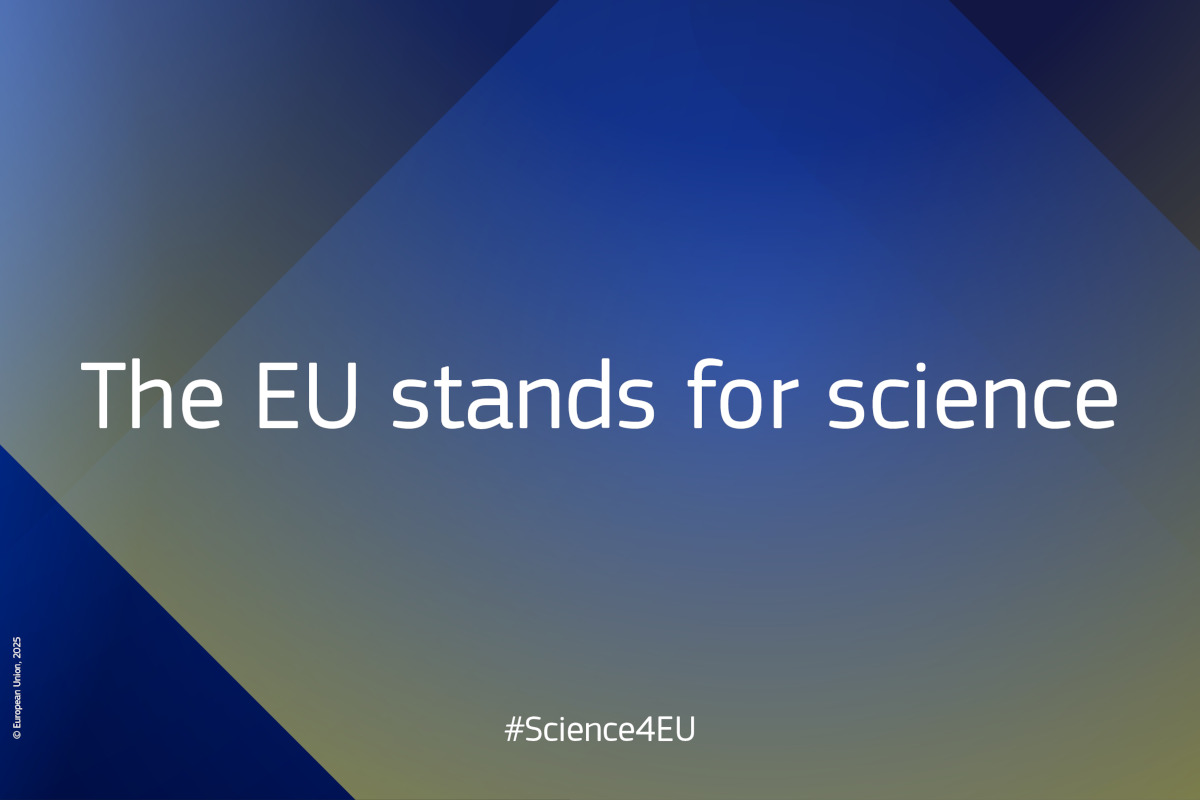While Europe’s green agenda faces new pressures, sustainability leader Sandrine Dixson-Declève outlines why sustainable investment remains vital for economic strength, planetary health and future resilience.
Special series

Science4EU
The Science4EU campaign shows how the EU stands for science. It shines a spotlight on the scientists, researchers, and innovators working with EU support to improve our lives and shape a better future for everyone.
Do you also stand for science?
More stories
Most popular
-
1By Andrew Dunne
-
2By Tom Cassauwers
-
3
-
4By Michaela Nesvarova
-
5By Ali Jones
Top videos
Smarter science: staying one step ahead of the next pandemic
18 June 2025
Robots to the rescue: miniature robots offer new hope for search and rescue operations
13 June 2025
Past articles
Researchers are studying the DNA of bats in order to shed light on why they age so slowly - something which could help uncover ways to reverse the ageing process.
Scientists have worked out how to make our immune systems turn against proteins linked to diseases like Alzheimer’s and Parkinson’s, offering the possibility of stopping and even reversing the effects of these devastating conditions.
Bats live for longer than their body size suggests, up to twenty times longer. In August, we hear how profiling their DNA is giving researchers clues about how to extend human life.
For the brain, time becomes a factor when dealing just with space, and vice versa – that’s the finding of researchers who are using modern technology to answer an age-old problem.
The economic crisis in Europe has forced many countries to scale back financing for blue-sky research, making European Research Council (ERC) funding increasingly important, according to the ERC’s 4 000th grantee, Dr Manuel Arruebo, professor of chemical engineering at Zaragoza University in Spain.
A friendship struck up in the photocopying room of Trinity College Cambridge, in the UK, between two senior academics – one in the arts, and one in the sciences – has led to an innovative translation of science: a piece of music for a string quartet.
A solar sail the size of almost 60 football fields could be one of the fastest ways across the solar system, as long as it is made out of microscopic charged wires.
Lightweight magnetic shields could be the best way to protect an astronaut from deadly radiation as they travel to Mars or beyond.
Researchers are developing textiles that could be used for large-scale seaweed farms off Europe’s coast.
The planned Square Kilometre Array telescope, a radio telescope to span two continents, could be instrumental in finding intelligent alien civilisations within our lifetimes, according to Dr Seth Shostak, senior astronomer at the US-based Search for Extra Terrestrial Intelligence (SETI) Institute. Dr Shostak was a speaker at the EU's Innovation Convention in March 2014.
A solar sail almost four times the size of the city of Paris could be one of the fastest ways across the solar system, as long as it is made out of microscopic charged wires.
New imaging techniques are helping give researchers an edge over nature, allowing them to create revolutionary new antibiotics which bacteria will struggle to develop resistance against.
The EU, European Member States and private companies have teamed up to boost economic competitiveness, create jobs and stimulate growth through seven public-private partnerships. They have announced EUR 1.13 billion of public funding to researchers who can help find solutions to some of the most pressing issues.
A new wave of researchers is setting out to help shed light on the unseen forces shaping the universe, and keep Europe at the forefront of experimental cosmology.
The convoying of trains could be one way to help double railway capacity and reduce carbon emissions, according to Andy Doherty, vice-chairman of the European Rail Research Advisory Council and Director of railways system engineering at Network Rail, the UK rail network operator.
European astronomers are planning to use a telescope as big as the earth to take the first ever photograph of a black hole – a task akin to photographing a mouse on the surface of the moon.
Could the Higgs boson help shed light on dark matter, or will a ghostly X-ray signal recorded by Dutch researchers turn out to be a first sign of the mysterious substance?
Innovations such as the Hawk-Eye line calling system, high-tech rackets, strings and smart monitoring can improve the game for tennis players, referees and spectators. However, too much innovation could change the nature of tennis, says Francesco Ricci Bitti, the president of the International Tennis Federation (ITF). Horizon Magazine spoke to him about tennis innovation at the EU’s Innovation Convention 2014.
The genome of the tsetse fly was sequenced in April, and it means scientists are closing in on a way to fight diseases caused by the pathogen it carries, according to Professor Jan Van Den Abbeele at the Institute of Tropical Medicine in Antwerp, who helped generate the data along with his team of researchers.
An explosion in research data combined with an increasing number of people who can use it is transforming science, and Europe should be at the forefront of the change, said Máire Geoghegan-Quinn, European Commissioner for Research, Innovation and Science.





























